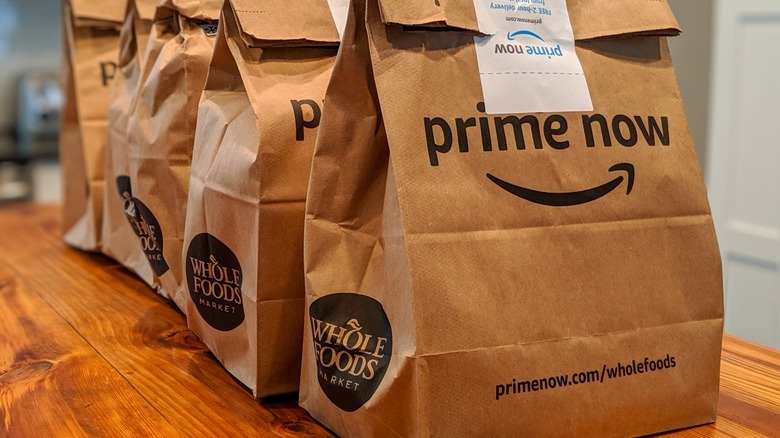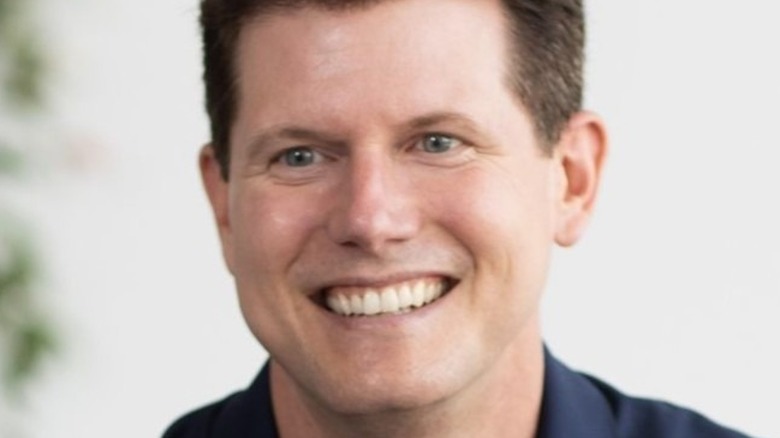Why Whole Foods' New CEO Is Fostering A 'Store-Centric Culture' After Amazon Acquisition
It's the end of an era for Whole Foods: John Mackey, founder and CEO of the grocery chain, retired on September 1 after more than 40 years with the company.
A college dropout-turned-conscious capitalist, Mackey, then 25, teamed up with his girlfriend Renee Lawson Hardy and raised $45,000 to launch SaferWay in Austin, Texas, in 1978. According to Business Insider, the natural foods store almost tanked because of its leadership's fixation on healthy eating. SaferWay didn't sell meat or products containing sugar, caffeine, alcohol, or white flour. Mackey lost half of his seed money after one year in business. To stay afloat, SaferWay merged with Clarksville Natural Grocery to become the first Whole Foods Market in 1980.
Now at 69, Mackey has an estimated net worth of $85 million, and Whole Foods has more than 500 locations across the United States, Canada, and the United Kingdom. Mackey's legacy was forever cemented when Amazon acquired Whole Foods Market for $13.7 billion in 2017. The move saved the company from its own demise: Activist hedge fund Jana Partners had become an investor in the grocery store chain and pressured Mackey to sell because of poor performance (via CNBC). But with team members complaining of understaffing and increased workloads; the elimination of part-time employee health insurance; and reduced break time under Amazon ownership, can Whole Foods return to its core values of promoting "team member growth and happiness" while ensuring the "delight" of customers?
Jason Buechel is the new CEO of Whole Foods Market
John Mackey handpicked Jason Buechel as his successor, stating that Buechel "is a true servant leader and champion of Whole Foods' culture and values." Buechel has worked as an executive for Whole Foods since 2013, his most recent role being chief operating officer as of 2019. When Buechel introduced himself to team members as the new CEO in September, he shared that he would be "dedicated to nurturing the best and most inclusive Team Member experience possible and fostering a store-centric culture."
At The Wall Street Journal's Global Food Forum in June, Buechel stressed his goal of reconnecting the company to its higher purpose and mission. According to Forbes, it was under Amazon's ownership that Whole Foods started "investing aggressively in prices" to expand its customer base and deal with inflation. "Our price perception is in a better place now. ... We're really proud of where we show up, especially on entry-level price points for high-quality products," Buechel said.
Whole Foods has worked to shed its "Whole Paycheck" persona since its merger with Amazon. Shortly after the acquisition, Amazon lowered prices on Whole Foods products like organic eggs, butter, and chicken. And, according to Retail Me Not, Prime members can connect their account to the Whole Foods app to get an additional 10% off sale prices. But while customers may have gained savings since the Amazon takeover, critics say they've lost the perks of the old Whole Foods shopping experience.
Buechel has a lot of work to do if he wants to separate Whole Foods' image from Amazon
Neil Saunders, managing director at Global Data, believes there's room for improvement at Whole Foods if the company wants to get out from under Amazon's shadow. On RetailWire's BrainTrust, he called the retailer "bland" in comparison to Wegmans, which he says has a superior in-store experience and private label products. "To justify the higher costs — and let's be honest here, Whole Foods is still high price even though they have done more with value tiers — Whole Foods needs to deliver far more than it presently does," he said.
Since the Amazon-Whole Foods merger, some stores that used to have popular bars and cafes with a community emphasis now feel sterile, like mini fulfillment centers for Amazon shoppers, reports D Magazine. A Washington Whole Foods recently reopened with Amazon's Just Walk Out technology, giving the store a "dystopian" vibe, per The New York Times. Many feel the "Amazonification" has affected the chain's food, too; Redditors who work there say the hot bar food used to be made in-house. Now, nearly everything for the department is shipped to stores ready to heat and eat.
Jeff Weidauer, principal at SSR Retail and BrainTrust member, summed up the unhopeful sentiment that seems to be shared by many disenchanted former Whole Foods fans: "After five years, it's clear that Amazon doesn't really know what to do with Whole Foods. There is no overarching purpose or meaning apparent any longer. It's little more than an Amazon locker that sells food."


